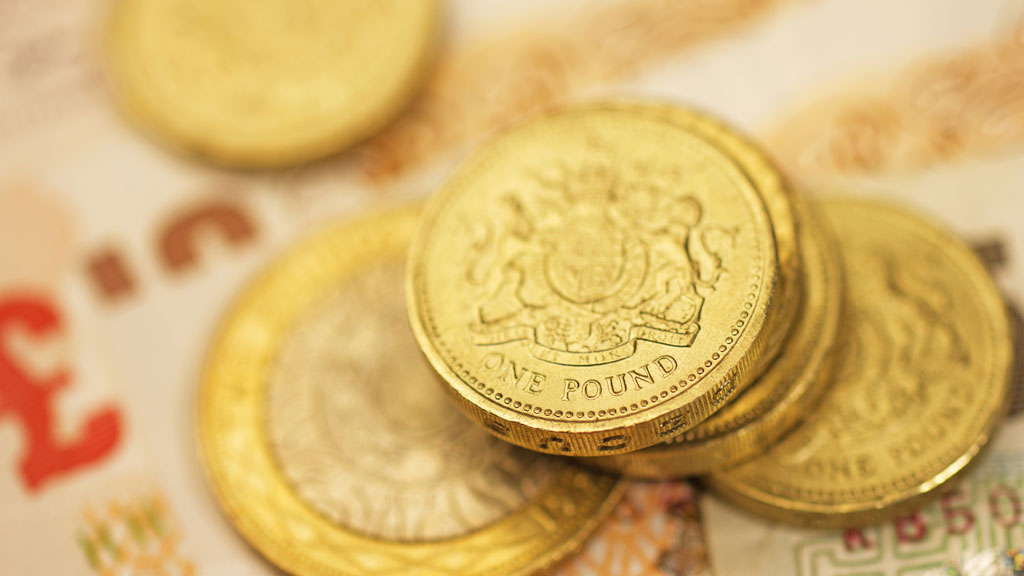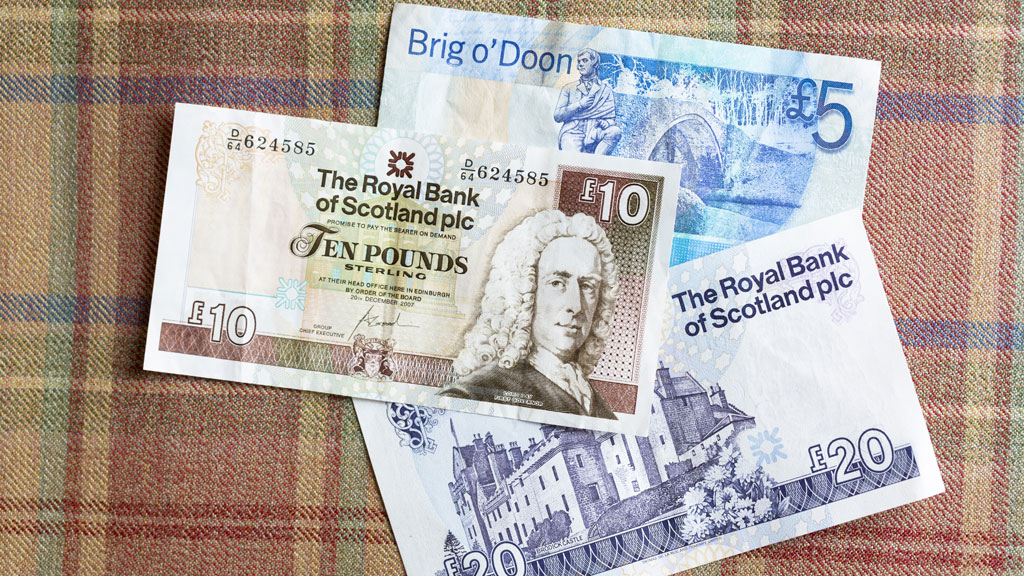Scottish yes vote: what happens to the pound in your pocket?
An opinion poll showing a small majority in favour of Scottish independence led to a fall in the value of the pound and Scottish bank shares. A taste of things to come?

First a disclaimer: if there is a yes vote in the 18 September referendum in Scotland, no-one can know for sure what the long-term economic consequences would be north of the border or in the rest of the UK.
For all we know, Scotland could continue to be a prosperous country, with England, Wales and Northern Ireland thriving too. But in the immediate aftermath of a yes vote, there would be consequences.
The financial markets have been reacting to the uncertainty created by a rise in the yes vote and the distinct possibility of Scotland going it alone – fear of the unknown.
Were Yes Scotland to triumph in a week’s time, some of this uncertainty would be removed, but no means all of it.
Channel 4 News spoke to Monique Ebell, an economist at the National Institute of Economic and Social Research (NIESR), for a non-partisan view of what would follow a vote for independence.
She believes the economic challenges faced by an independent Scotland would be considerably greater than for the rest of the UK, given that Scotland is responsible for just 9 per cent of UK national output, including oil.
Difficult
“I would expect the transition to be quite difficult for Scotland. For the rest of the UK, it wouldn’t be good, but it wouldn’t be the end of the world.”
But Dr Ebell thinks England, Wales and Northern Ireland would feel the effects too, even before Scotland became independent in 2016 (the Scottish government’s target date).
People throughout the UK could be hit by higher interest rates because of a likely increase in the cost of goverment borrowing, and the big Scottish financial institutions, such as RBS, would be likely to move south.
Uncertainty
Dr Ebell said: “What we are seeing right now is quite similar to what happened ahead of the Quebec referendum. The Canadian dollar lost 3.5 per cent of its value and shares exposed to Quebec fell too. When there’s uncertainty, people freeze, they don’t invest.
The pound
“There’s no reason why a Scottish yes vote should lead to a loss of confidence in the rest of the UK’s economy. Talk of a currency crash is over-blown.”
But if the pound did slide, it would affect holiday makers – while benefiting exporters – “a double-edged sword”.
Scottish banks
Dr Ebell said: “I would expect many of the larger financial institutions to redomicile to England and I would expect that to happen quite quickly.”
This would not automatically lead to big job losses at Scotland’s second largest private sector employer immediately afer a yes vote, but “employment in financial services (in Scotland) certainly will not rise after a yes vote, the question is by how much it will fall”.

Scottish bank shares could come under pressure, and it would be up to the Bank of England, responsible for all UK banks until independence, to step in. “The first task of the Bank of England would be to stem the flow of people selling shares in Scottish banks. You’d want to bolster confidence in financial institutions.”
Currency union
The question of which currency an independent Scotland would use is causing the most concern, with the UK government ruling out a currency union and the Scottish government arguing that, in the absence of a deal, it would continue using sterling but would not be liable for its share of UK debt.
Dr Ebell said: “The rest of the UK has ruled out a formal currency union because the rest of the UK would be responsible for bailing out a foreign country.” This would have meant putting taxpayers at risk in the rest of the UK, she said.
Debt
“The threat to walk away from Scotland’s share of government debt has certainly added to the uncertainty. That is quite extraordinary. That is a big deal.”
An independent Scotland would just be starting out and would need a good credit record, said Dr Ebell. Failing to honour its share of the debt would make borrowing more difficult and more expensive.

Regardless of whether a deal was done – with the Scottish government paying back its share of the debt to the UK government over time – the rest of the UK would remain responsible for total debt to creditors.
Interest rates
With lower national output, the rest of the UK’s debt to GDP ratio would rise from 93 per cent to 102 per cent, which could lead to higher borrowing costs.
“Governments with higher debts pay higher interest rates. In general, the borrowing costs of households and businesses are at least as high as those faced by governments. If banks’ funding costs increase, they can pass some of that on to borrowers.”
The NIESR has calculated that a post-independence Scottish government’s borrowing costs would be 0.5-1.5 per cent higher than the rest of the UK because it is a small country and small countries tend to be charged more for borrowing.
Taxes and spending
Dr Ebell said: “Given projections of decreasing oil stocks and decreasing oil tax revenues, Scotland will find itself in a different fical position. Elevated borrowing costs would mean Scotland would have to raise taxes or cut public services.”